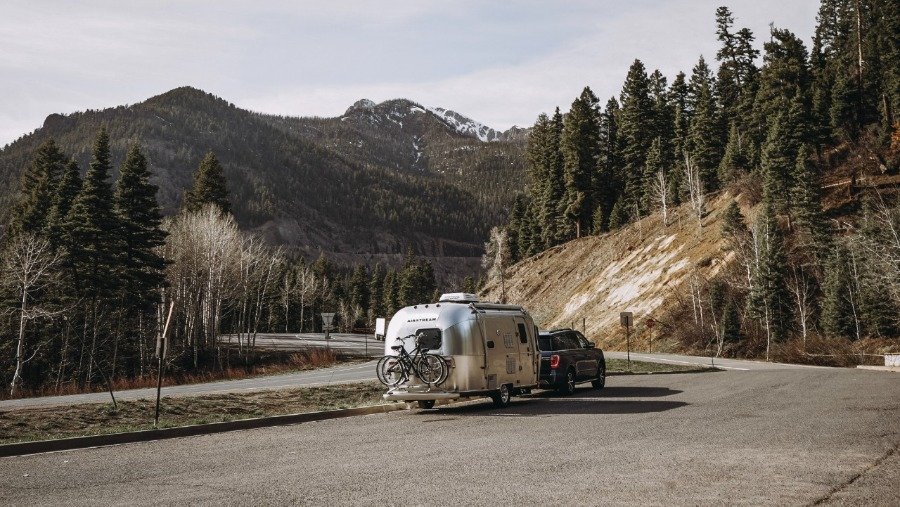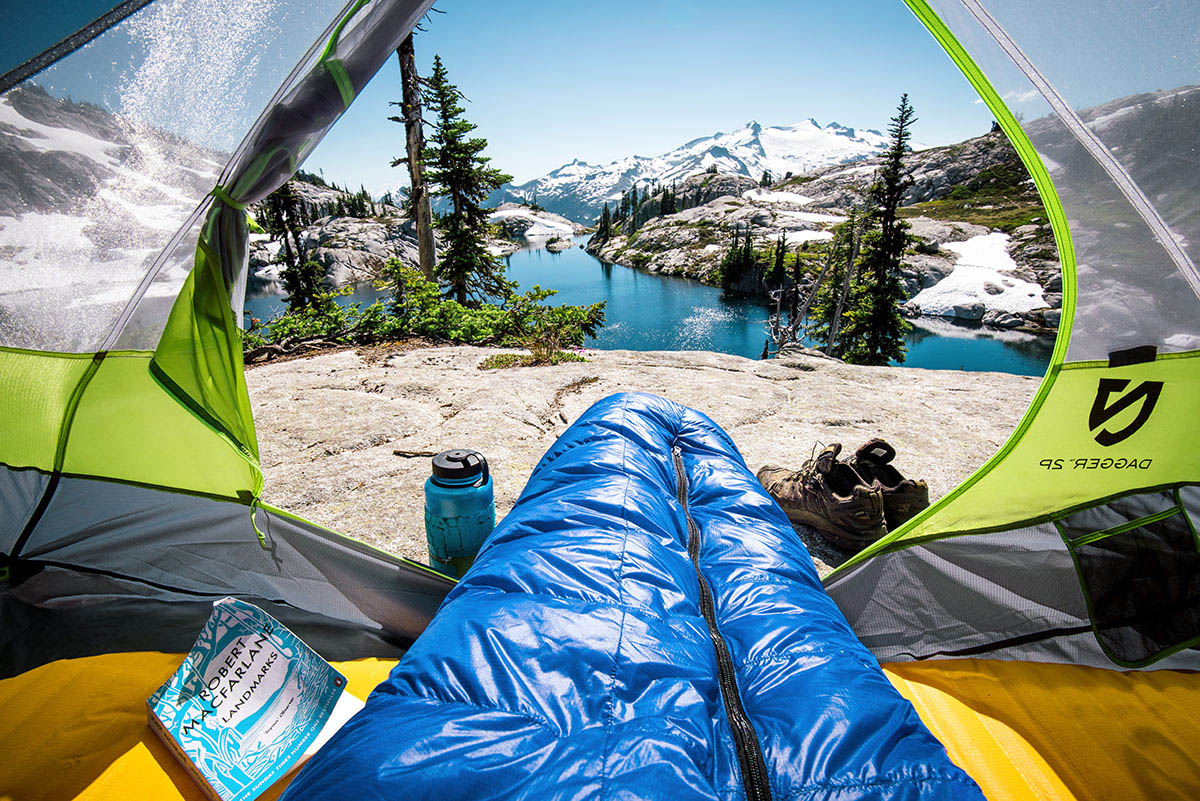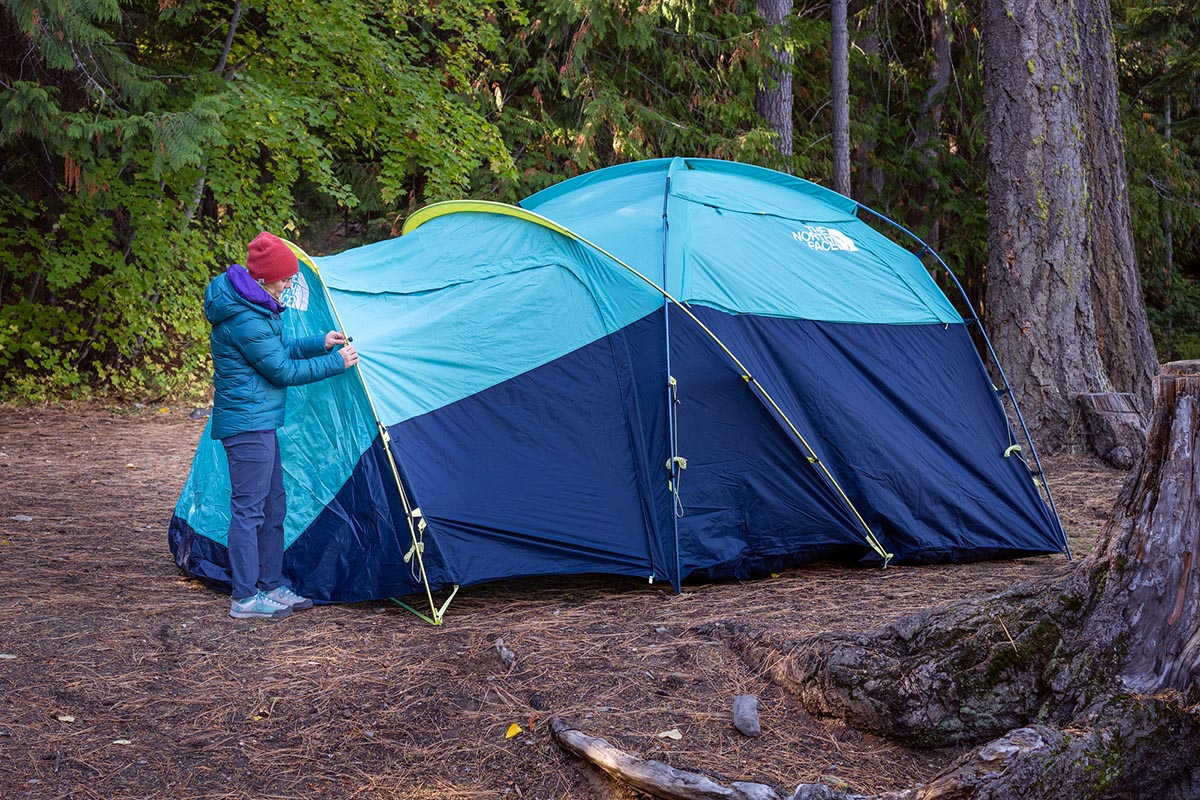Summer Van Life Boondocking Just Got a Whole Lot Cooler: Dometic RTX2000 RV Air Conditioner Review
A good night’s sleep while “boondocking” in southern states used to mean sweating through summer nights, or using bulky custom 12V battery systems that were iffy and outlandishly expensive. Both 12V air conditioners and battery systems have matured, however, making it much more comfortable to stay unplugged all summer long.
Dometic released a 12V air conditioner to the RV market in late 2020, and battery technology had drastically improved and become more accessible around the same time. The confluence of these factors lead me to be a test mule for a 12V air conditioning system in my Vandoit Ford Transit campervan.
Over two summers in central Texas, I tested the Dometic RTX2000 RV air conditioner in the harshest conditions. A Vandoit 460 amp-hour lithium-ion system powered the unit.
I don’t like to use “game-changer,” but that’s what I think the Dometic RTX2000 is for RVing, van life, and overlanding. Since a 12V DC air conditioner and the associated lithium-ion electrical system were in development stages, it wasn’t all smooth sailing initially. But after working the kinks out, it proved effective and reliable.
In short, the Dometic RTX2000 12V air conditioning system untethered summer van camping for me. I don’t even look for sites anymore; I just drive, confident my kid, dog, friends, and myself will be able to have a restful night’s sleep no matter where we stop.
Trucking Industry Tech

The Dometic RTX2000 came from the commercial trucking industry; in that world, it’s called a “parking cooler.” Truckers use them to cool the cab when they park overnight. Dometic aims at reducing fleet fuel costs by allowing cab cooling without idling, which burns about one gallon of diesel per hour.
Dometic claims the 2,000-watt unit cranks out 6,824 BTUs of cooling energy. For comparison, many RV rooftop air conditioning units claim a 13,500 BTU rating, but campers must plug them into a 110V outlet — shore power or a generator.
When the test unit hit the Vandoit floor, my questions were, “Can a reasonably sized lithium-ion system run the RTX2000 overnight, and if so, how effective will it be given the lower BTU rating, and would the total cost be palatable to a campervan customer?”
The unit is also sized differently from typical camper air conditioner units, so retrofitting it into a standard-size roof cutout was also an issue.
Vandoit successfully engineered solutions to each issue, and the system proved to be … a game-changer (sorry).
Dometic RTX2000 RV Air Conditioner Fitment

Because Dometic didn’t initially design the RTX2000 for RVs, the dimensions differ from a typical RV air conditioner. My van had a typical 110V unit and had the standard 14″ x 14″ opening. The RTX2000 requires a 14.5″ x 15.5″ opening, and Dometic doesn’t include an adapter. Retrofitting the new 12V unit required a few extra steps.
Also, the Ford Transit vans have a curved roof, so sealing the cutout against water wasn’t as straightforward as it could be on other vans. Once Vandoit addressed the different roof cutout and curvature, it was all systems go.
I suggest any DIY builder peruse the internet on installing air conditioners on Ford Transits, as well as how other DIYers installed the Dometic RTX2000. There are plenty of helpful resources, and as time goes on, more RTX2000 RV and van installation resources will surely arise.
Dometic supplies mounting hardware, a power cable kit, a roof cutout guide, and an internal trim piece with the unit.
Power System

Dometic claims that the RTX2000 draws 19 amps running in “Eco” mode. Estimates claim that every 5,000 BTUs of energy requires 30 Ah/hour of power for each hour of operation. This equates to one lithium-ion 12V/100Ah battery for every 3 hours of use or 2 hours for a standard 12V/100Ah lead-acid battery. Theoretically, 300 total amp-hours of capacity should be able to take care of overnight cooling duties with the RTX2000.
But I’m in Central Texas; late summer can deliver incredible heat with crushing humidity. Summer activities here typically involve being submersed in water or dodging rays in the shade.
But the limiter for extended enjoyment is the ability to sleep at night. Lying in sweat in humid, warm air takes the joy out of camping for many, especially in a van or RV, where breezes cannot penetrate. And fans can only do so much when the overnight low is still in the 80s or 90s.
The Vandoit 460 amp-hour system was forecasted to allow enough cushion for running the air conditioner longer or harder than “normal” and for providing the electrical requirements for lights, computers, and anything else typically in use in an RV during the summers. Time would tell.
Harsh Testing of the Dometic RTX2000
I purposely chose to camp in my RV during the hottest and most humid months of the Texas summer, with the most vocal of camping partners, my 8-year-old daughter. All the summer trips involved swimming in creeks, rivers, or spring-fed swimming holes, so we spent the daytime outside the van.
But being a child, she didn’t last much past 5 p.m. most days. We would cook dinner outside on a grill, hiding under thick tree cover. Then around 7 or 8, we would head inside for the night.
Nighttime lows usually hovered in the 80s, and the humidity was consistently over 50%, many times way over that mark. I set the thermostat to 78 or 76, about a 10- to 12-degree differential from the low outside temperature for the night.
The RTX2000 pushes much less air volume than the 13,500 BTU air conditioner it replaced. This lower volume of air moved per unit time caused two noticeable drawbacks to the 12V unit.
The first was that it took longer to cool down the entirety of my long-wheelbase, tall Ford Transit van. I would estimate it took about twice as long to feel the cool air fill the driver’s cab compared to the older, larger unit.
The second noticeable effect of the smaller moved air volume was that any obstruction, like a bed platform, would block the cold air. When I had my upper bunk bed out, it was a lot warmer on the lower bed. The person on the upper bunk would be cold, but the person on the lower bunk would be too warm.
The easy fix was a 6-inch 12V fan aimed at the airflow leaving the RTX2000. This mitigated both issues. The entire van cooled down much faster, and the fan spread the cold air evenly throughout. I felt this addressed every issue I had with the smaller capacity of the RTX2000, eliminating the drawbacks of being unplugged.
One benefit of the Dometic RTX2000 moving a smaller amount of air was that it ran much quieter than any 110V RV air conditioner I’ve ever used. Yes, it still made noise, but it was much less than with any other unit. If I had to pin a number on it, I would say it was 30% quieter than the unit it replaced.
Well, How Long Did It Last?

The first question everyone asked when I explained that the air conditioner ran off the van batteries was, “How long will it run?”
Long enough! I never ran out of battery power throughout both summers. On average, the air conditioner ran for 9 hours with an ambient temperature differential of 10-12 degrees.
For where I live, removing humidity was at least equally important, and I could see how much moisture it pulled out of the air by the large puddle of water under or around the van every morning.
Most of the time, I had at least 20% of my battery power left in the morning, sometimes more. So many factors can affect how much the compressor has to run, etc., but I believe I was testing the RTX2000 in demanding circumstances.
I know that my temperature setting is probably on the warmer side of what others may prefer, but I am confident that even running a 15-degree differential would still be fine overnight with the 460 amp-hours I had on board.
Conclusions: Dometic RTX2000 12V RV Air Conditioner

I cannot overstate the freedoms gained from having this 12V air conditioner. Summers here used to involve planning and wrestling for the limited electric campsites in the Texas Parks and Wildlife inventory. It often meant choosing a destination based solely on outlet availability.
But now, I can wing it. I can park anywhere in the dead of summer and camp comfortably overnight. The RTX2000 and the Vandoit lithium-ion electrical system untethered us from the grid, making planning and executing summer trips an entirely different ballgame.
But it’s still a significant investment. The Dometic RTX2000 alone carries an MSRP of $3,100, and the Vandoit lithium-ion electrical system was substantially more expensive than its lead-acid counterpart. My system cost less than my friends’ one-off custom 12V systems, which have proven troublesome.
But the freedom to camp almost anywhere is invaluable to me. I’m currently having another van built, and the Dometic RTX2000 and a large lithium-ion system are both priorities on the new build.







